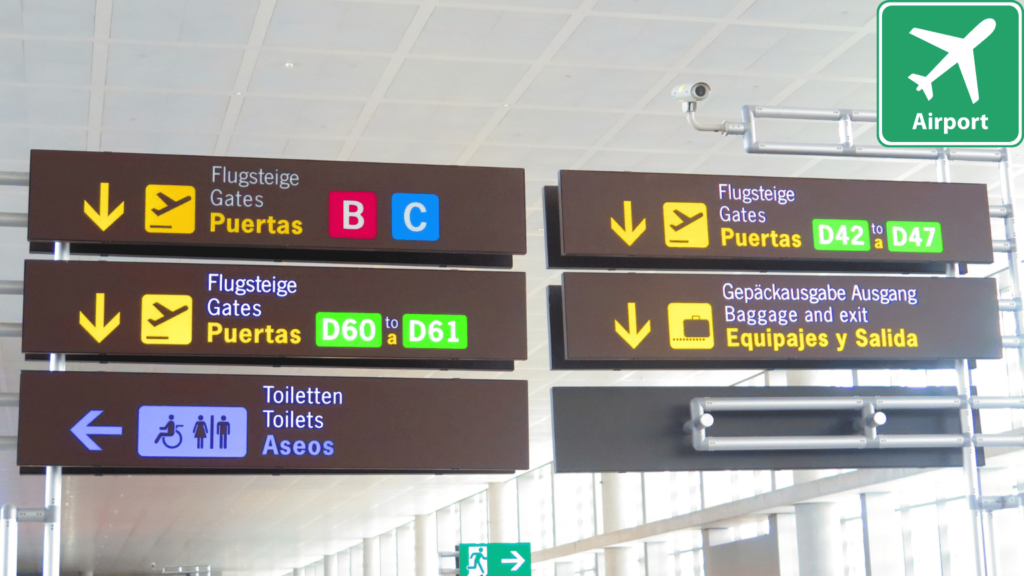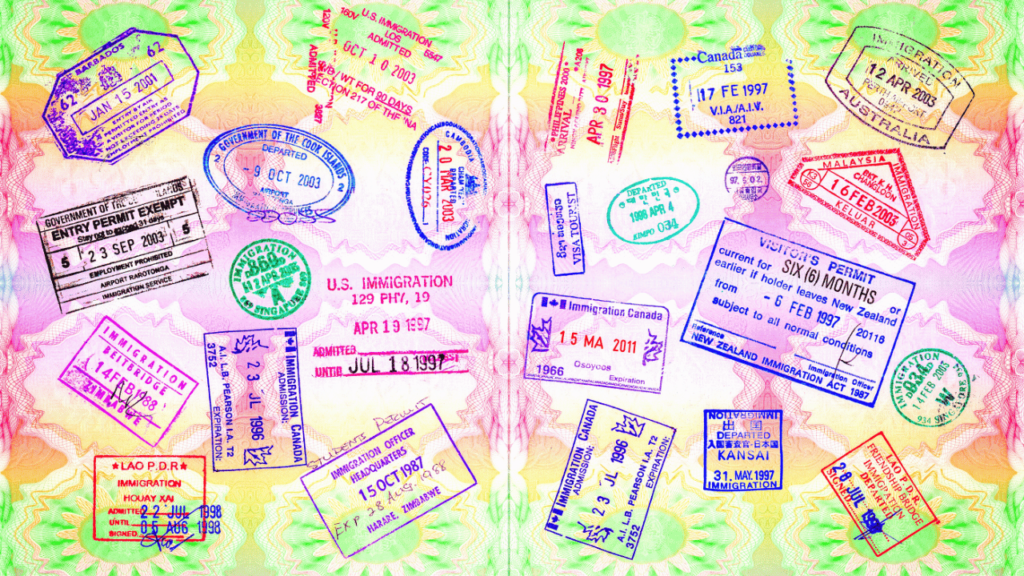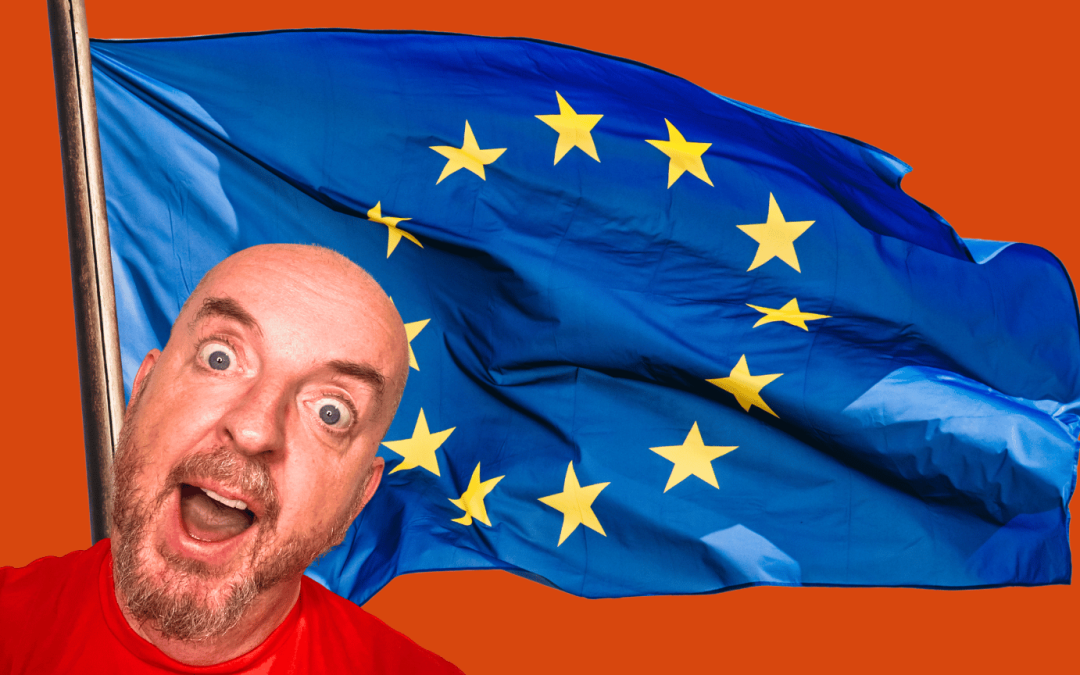The latest update on the EU’s new #EntryExitSystem and #ETIAS, designed to enhance security across Europe. Everything you need to know.
If you’d prefer to watch the video, click the pic below
Transcript of the Video, featuring two Skatz’s!
Skatz 1: Are you feeling anxious about the EU’s new Entry Exit System?
Skatz 2: The EES?
S1: Yes, it’s been delayed before. Is it actually going to happen this time?
S2: And if it does, are we looking at massive travel delays?
S1: Plus, what kind of personal information are they going to ask for?
S2: What if you’ve got a criminal record? Is that going to be a problem?
S1: And what about ETIAS? Is it just another word for a visa?
S2: So many questions, but we’ve got the official answers to help you navigate these changes and keep your travel plans on track.

S1: Let’s dive right in.
S2: Is the EES really happening, and when?
S1: After years of testing, IT issues, and delays, the EU has announced that the EES will officially go live on November 10th this year.
S2: 2024, right?
S1: Exactly. And ETIAS will roll out about six months after that.
S2: How’s it all going to work?
S1: The EES will record your biometric data—like fingerprints and a facial image—along with your passport details, and log your entry and exit dates for any European country.
S2: So, what does that mean at the border?
S1: You’ll scan your passport, a camera will recognise your face, and you’ll place your finger on a scanner for your fingerprints. No more entry and exit stamps. You only need to update your biometrics every three years. Easy peasy!
S2: What’s the purpose behind all this?
S1: It’s all about boosting security. The system will instantly spot anyone who’s overstayed their allowed time in the Schengen Area.
S2: Sounds a bit like Big Brother, doesn’t it?
S1: You could see it that way, but it’s really about making it harder for criminals, terrorists, and spies to slip through the cracks using fake passports. Biometric checks make that much tougher.
S2: What happens if you overstay your 90 days?
S1: Your passport will flag it right away, and you could face fines or even a ban from entering the Schengen Area in the future.
S2: So, if everyone plays by the rules, it’s all good?
S1: Exactly. The main complaints are from people who don’t want to share their biometrics or who fear delays, especially at ferry ports.
S2: And will there be delays?
S1: Some delays are likely at first, but probably not as bad as some predict. The launch has been delayed to work out potential issues and set up ‘precautionary flexibility measures’ to ensure smoother travel. November 10th marks the start of a six-month ‘soft launch’ to ease everyone in.
S2: Is that why ETIAS isn’t launching at the same time?
S1: Yep, better to roll out one system at a time.
S2: So, smooth sailing then? Haha.
S1: Well, I’m optimistic, but no system startup is ever perfect. Expect a few hiccups, and I’m sure the press will have a field day with any problems that do arise.
S2: And blame the French?
S1: Most likely. And the government, of course.
S2: Naturally.
S1: So, be prepared for some delays while everyone adjusts.

S2: That covers the EES, so what about ETIAS?
S1: ETIAS is a visa waiver, not a visa. Unlike a visa, ETIAS lets you enter the Schengen Area without a full visa application. It’s more like the U.S. system where you apply online ahead of your trip.
S2: How long does the application take?
S1: Not long, assuming you have all your info ready.
S2: What info do you need to provide?
S1: Time for a list!
1/ Personal details: your name, birthdate, place of birth, nationality, home address, parents’ first names, email, and phone number.
2/ Your travel document details—basically, what’s on your passport.
3/ Your education level and current job.
4/ Your travel plans in the Schengen Area and your health status.
5/ Any criminal convictions, travel to conflict zones, and if you’ve been ordered to leave any country.
6/ Finally, you’ll confirm that you’re telling the truth and understand the entry conditions.
S2: Does everyone need to apply? Even kids?
S1: Yes, everyone without an EU passport, including children. But a legal guardian or parent has to apply for minors.
S2: Is there a fee?
S1: Yes, it’s €7 for those aged 18 to 70, about £6.
S2: How long does it take to process?
S1: Just a few days.
S2: What if you have a criminal record? Will you be refused?
S1: Not necessarily. They’re mainly screening for high-risk travellers who’ve committed serious crimes. Click HERE to go to the official ETIAS site and find all the details about the offences, what to do if you’re refused, and other important info.
S2: That’s really useful.
S1: It is. Check out the other links below to see which countries require ETIAS and which nationalities need to pass the pre-screening.
S1: If you’ve found this article helpful, consider buying me a coffee or three by clicking HERE.
S2: And don’t forget to Subscribe to our monthly Newsletter.
S1: That’s all for now. Peace & Love!
S2: Peas & Fluff!
S1: See you in the next article!
S2: Let’s dance!
Article by Skatz (and Skatz)
Extra Links:
EU website about travel – what you need to apply for ETIAS
https://travel-europe.europa.eu/etias/what-you-need-apply_en
ETIAS Application
https://etias.com/etias-application
ETIAS Vs EES
https://travel-europe.europa.eu/key-differences-between-etias-and-ees-2023-06-06_en











0 Comments